Welcome to guest blogger number 2, Peter Buckman of the Ampersand literary agency.
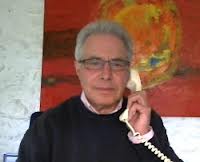
I worked with Peter some years ago on a new play festival organised by the Writers’ and Directors Guild. He was a writer then, mostly for stage and television, with credits under his belt such as the screenplay for the film All Together Now, episodes of Morse and The House of Eliott and the TV adaptation of All Passion Spent. Since then he’s swapped writing for agenting so I thought I’d ask him a few questions about what it’s like to be on that side of the writing fence.
~
PT: You spent your working life as a scriptwriter. What made you decide to become an agent?
PB: I also wrote novels and non-fiction, journalism, and stage plays – basically anything that paid except advertising and greetings cards – but as writers grow old, commissioning editors get younger and prefer their own generation. In other words, no one was buying my work, and as my wife had been an agent selling foreign rights for many years, it seemed a sensible idea to find authors for the English-speaking market so that between us we could conquer the world. That was over ten years ago, and I’m having more fun now than ever.
PT: What sort of genres and authors do you represent?
PB: The first book I took on turned into “Slumdog Millionaire”, which either shows what incredibly good taste I have or that talent needs luck and good timing. I asked my veteran consultant Peter Janson-Smith (who represented Ian Fleming among other luminaries) if we should specialise, and he said we should wait and see what comes our way. So we take on writers whose style really enthuses us with a terrific story told in a distinctive voice. And that includes non-fiction as well as novels.
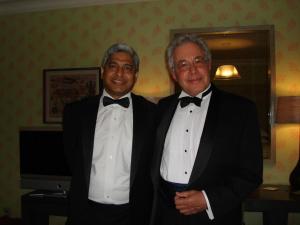
PT: As far as I know you don’t represent scriptwriters, even though you were one yourself. Is there a reason for that?
PB: My first job was as an editor at Penguin, and on the whole people in publishing are a decent bunch. Editors move around but their tastes are reasonably constant, so you know what, and who, you are dealing with. The same cannot be said of the film business; in theatre it’s as hard to get a new playwright commissioned as it is to get a poet published; and as for television, what they are looking for changes on a daily basis. So we keep sane by dealing chiefly with publishers, though of course we frequently negotiate contracts in other media, including digital.
PT: What makes you take a particular writer on? Is it simply what you perceive to be his or her commercial value, or is there more to it?
PB: Believe it or not, commercial considerations come low down in our list of priorities. Obviously we won’t take someone on if we don’t think we can sell their work, but it’s the story-telling skill, the voice, the ability to make the familiar fresh, that really excites us.
PT: What kind of books and authors are currently selling best, in your experience?
PB: Genre material seems to be doing well – crime, of course (though I detect a slight shift from the hard stuff, with lots of violence, to cosier crime), but also sci-fi, fantasy, and romance. One thing I do know is that though publishers are always saying “vampires are dead” or “nobody wants to read about angels/zombies/elves any more”, they’re pretty quick to snap up a self-published writer who’s proved readers like something familiar.
PT: You had a massive success a few years ago with Slumdog Millionaire, which started out as a book called Q & A written by an unknown author called Vikas Swarup. Can you tell us how that all came about?
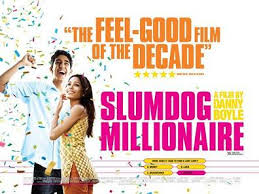
PB: It’s a bit of a fairy story. I was about to close down my computer one evening when the following opening caught my eye: “I have been arrested. For winning a tv quiz show.” I thought that was pretty intriguing, read the chapter, and rang up the author, an Indian diplomat stationed in London, to ask for the rest. When we met, he told me he’d only written the first chapter, and was going back to India in three weeks. I suggested he finish it, and he sent me the whole first draft a couple of days before leaving. I suggested some small changes, which he made on the flight home, and within six weeks I’d got him a two-book deal with Doubleday, for a six-figure advance. His editor showed the ms to Film 4’s book scout, and they asked if they could have an option. My initial response was no, as I was sure I’d get offers from Hollywood, but they persisted, and in the end we came to an agreement. I thought they were wrong to commission Simon Beaufoy to write the screenplay (he’d never been to India – but then nor had I), and certainly mistaken to get Danny Boyle to direct, as his two previous films had been flops. But the film was made amazingly quickly, did well at festivals like Toronto, and of course ended up with 8 Oscars, not to mention being sold in 43 languages. Nothing has gone so smoothly since.
PT: Other than that, what has been your biggest success so far?
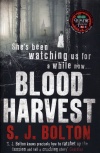
PB: Sharon Bolton has done very well with Transworld. The prolific Cora Harrison always recoups her advances and earns royalties, whether writing for juveniles or adults. Georgette Heyer continues to sell hundreds of thousands of copies, even though she’s been dead for 40 years. What I’m proud of is that almost every one of our fifty or so authors has been found a publisher – and we’re continuing to work on behalf of those who haven’t.
PT: What do you personally enjoy about being an agent? Do you miss being a writer at all?
PB: I write all the time, articulating my thoughts about the books our clients send us. I’m better at reacting than creating, and I find the process of helping a writer to hone their work very rewarding. And I enjoy the lunches and parties: publishing is a very sociable profession.
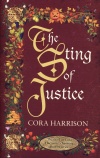
PT: Do you or your readers read everything that is sent to you?
PB: We look at everything, but we don’t read it all. We get around 100 submissions a week, every week, and if we read them all we’d never have time to work on our clients’ behalf. Which is why the first sentence/paragraph/page is so important: we put ourselves in the position of any potential book buyer, and need to be intrigued before we get involved.
PT: The thorny question: are you taking on new writers at the moment?
PB: We’re being cautious, because this is the harshest publishing climate I’ve experienced in over 40 years in the trade. But new writers are our future, so of course we are always looking for talent that tickles our imagination.
[PT: For Ampersand’s submission requirements please check their website at www.theampersandagency.co.uk]
PT: How in your experience has self publishing impacted on the book business as a whole?
PB: It’s changed it utterly, and democratised it via digital distribution. But it has also impoverished most writers, because payments (except for those who sell hundreds of thousands) are based on absurdly low prices, and there’s no quality control over content.
PT: Do you have any words of advice for writers?
PB: Trust your instinct over your intellect, and don’t be too proud to promote yourself.
